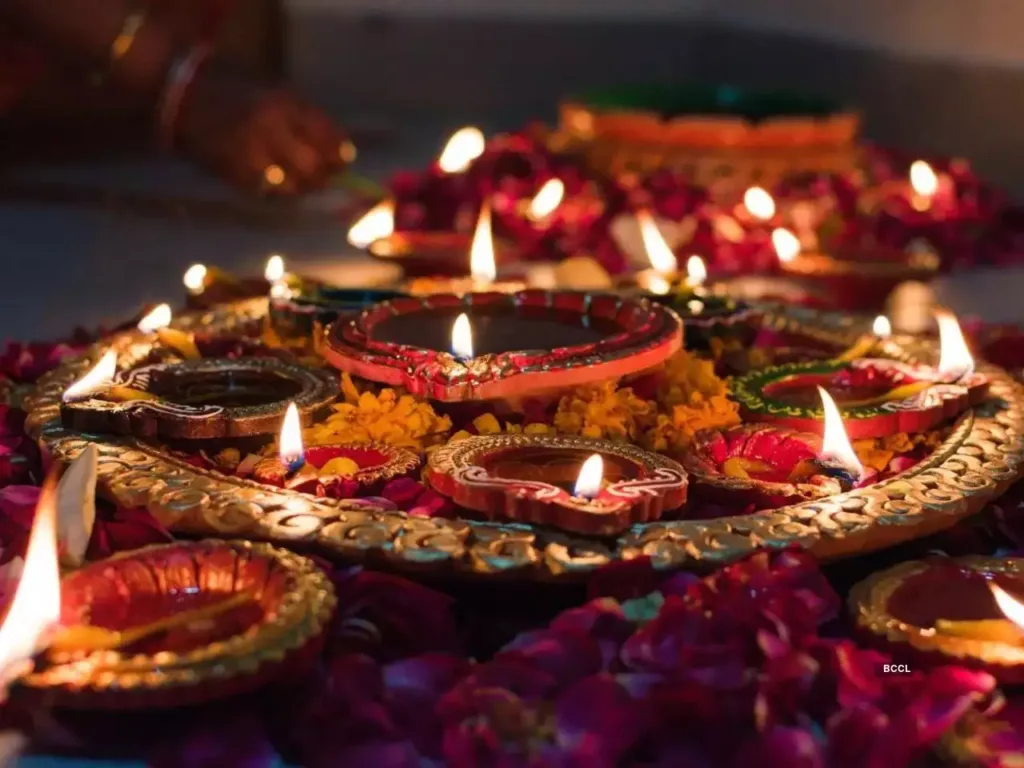
Table of Contents
Introduction to Diwali
Diwali, also known as the Festival of Lights, is a significant Hindu festival celebrated by millions of people around the world, including in the USA. Diwali holds great cultural and religious importance and is a time of joy, celebration, and renewal. This festival signifies the victory of light over darkness and good over evil. In the USA, Diwali is celebrated by the Indian diaspora and other communities through various cultural events, fireworks, traditional food, and decorations.
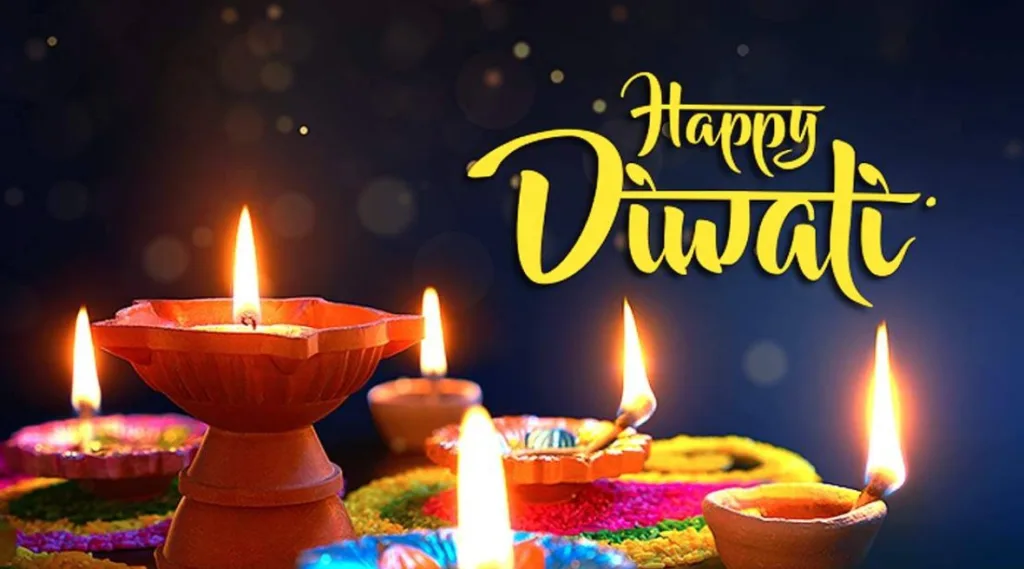
Diwali is a festival that is eagerly awaited by people of all ages. It is a time when families come together, friends gather, and communities unite to celebrate the triumph of light over darkness. The festivities create a sense of joy and excitement in the air, with streets adorned with vibrant lights and decorations.
Diwali is not only celebrated by Hindus but also by people of different faiths who embrace the multicultural spirit of the festival. The celebration of Diwali in the USA is a testament to the country’s diversity and respect for different cultures and traditions. It is an opportunity for everyone to come together and experience the vibrant traditions of Diwali.
Diwali Date and Duration
| Festival | Date | Thithi | Celebrations |
|---|---|---|---|
| Dhanteras | Friday, 10, November 2023 | Trayodashi | Festival of Purchasing Gold and Metals |
| Choti Diwali | Saturday, 11 November 2023 | Chaturdashi | Decorations and Making Rangolis |
| Diwali (Laxmi Puja) | Sunday, 12 November 2023 | Amavasya | Festival of Lights and diyas |
| Govardhan Puja | Tuesday, 14 November 2023 | Pratipada | Offer prayers to Lord Goverdhan (Shri Krishna) |
| Bhai Dooj | Wednesday, 15 November 2023 | Dwitiya | Celebration of brothers and sisters |
Diwali in 2023 will be celebrated on Sunday, November 12. The festival typically lasts for about five days, with each day holding its own significance and rituals. It begins with Dhanteras, which is dedicated to wealth and prosperity. On this day, people buy new utensils, jewelry, and other items as a symbol of good luck. The second day is Naraka Chaturdashi when Lord Krishna is believed to have defeated the demon Narakasura.
The third day is Diwali, the main day of celebration, when people light diyas (clay lamps), burst firecrackers, exchange gifts, and enjoy festive meals. The fourth day is Govardhan Puja, which is associated with Lord Krishna lifting the Govardhan Hill to protect the villagers from heavy rains. The fifth day is Bhai Dooj, a day dedicated to the bond between brothers and sisters.
These five days are filled with vibrant celebrations, prayers, and festivities. Each day has its own unique customs and rituals, adding to the richness and diversity of the Diwali celebrations.
For example, during Dhanteras, people clean their homes and decorate them with colorful rangoli designs made of colored powders or flower petals. They believe that these decorations will invite Goddess Lakshmi, the goddess of wealth and prosperity, into their homes. People also buy gold, silver, or other precious items as a symbol of good fortune and prosperity.
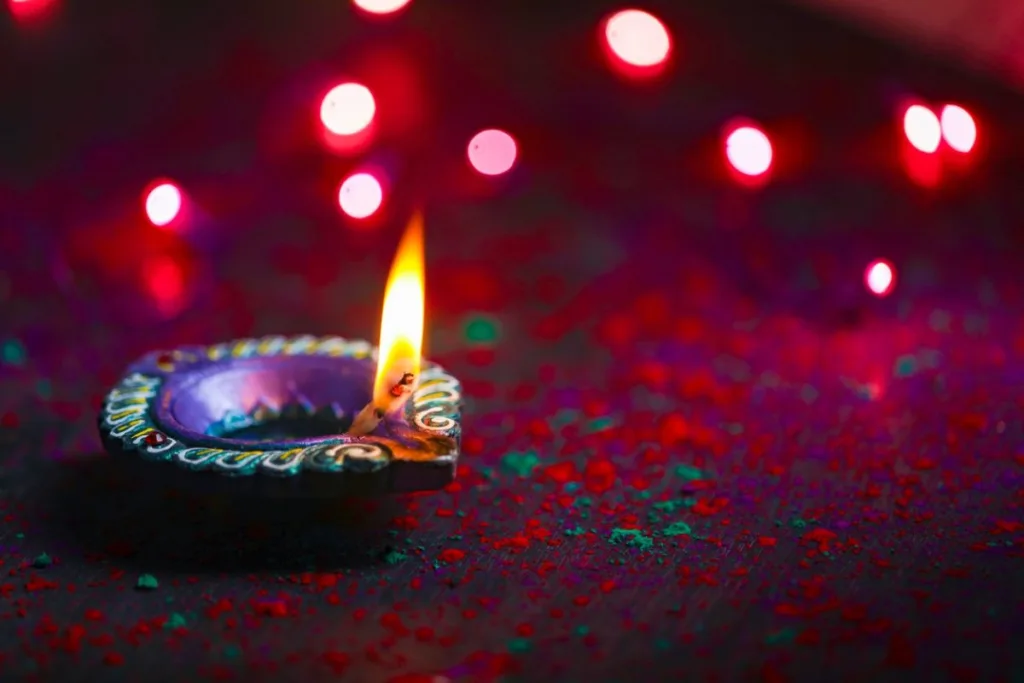
Diwali Traditions and Customs
During Diwali, several traditions and customs are observed to honor the festival’s spiritual and cultural significance. Lighting candles, clay lamps (diyas), and fireworks are significant customs during Diwali. These symbolize the victory of light over darkness and the triumph of good over evil.
In addition to lighting lamps, other traditions include wearing new clothes, exchanging gifts, cleaning homes, creating rangoli designs, and preparing special festive meals. Families gather, wear new clothes, eat sweets, light diyas, and pray for their ancestors during Diwali. These traditions foster a sense of togetherness, gratitude, and renewal.
For example, one of the most common traditions during Diwali is the creation of intricate rangoli designs. Rangoli is a decorative art form created using colored powders, rice, or flower petals. These vibrant designs are made at the entrance of homes to welcome the goddess of wealth and prosperity, Goddess Lakshmi. Rangoli designs can be simple or elaborate, depending on personal preferences and artistic skills.They add a beautiful and auspicious touch to the festive celebrations.
Another important tradition is the exchange of gifts. Diwali is a time for expressing love, gratitude, and good wishes to family, friends, and loved ones. Traditional Diwali gifts often include sweets, dry fruits, decorative items, and spiritual artifacts. The act of giving and receiving gifts strengthens bonds and fosters a sense of unity and joy during the festival.
Furthermore, during Diwali, it is common for families to clean their homes thoroughly. This tradition, known as “Diwali cleaning,” is believed to welcome the goddess Lakshmi and ensure the flow of positive energy into the household. It is an opportunity to declutter, organize, and create a fresh and inviting environment for the celebrations. Additionally, the cleaning process is seen as a metaphorical act of removing negativity and ushering in new beginnings.

South Asian Engagement Foundation
Diwali Celebration in the USA
The Indian diaspora and other communities celebrate Diwali with great enthusiasm in the USA. Diwali is marked by cultural events, traditional food, decorations, and fireworks. It is a time for families and friends to come together, share joyous moments, and celebrate the festival’s spirit of light and positivity. The celebrations often showcase the rich cultural heritage of India through music, dance performances, art exhibitions, and community gatherings.
In the USA, Diwali is not only celebrated by people of Indian origin but also by individuals from various backgrounds who embrace the multicultural spirit of the festival. The celebrations bring together people from different communities, fostering a sense of unity and understanding. Diwali events often feature diverse performances and activities that highlight the richness and diversity of Indian culture, such as traditional dances like Garba, bhangra, and classical music performances. These celebrations create a vibrant and inclusive atmosphere where everyone can come together and experience the joy of Diwali.
For example, in New York City, the annual Diwali at Times Square event attracts thousands of people from different communities. The event features live performances by renowned artists, cultural showcases, and a grand lighting ceremony. It is a celebration of diversity and unity, where people can immerse themselves in the festive spirit of Diwali. Similarly, in Chicago, the Diwali Festival of Lights is organized by the city’s Indian community. The festival includes music, dance performances, food stalls, and a spectacular fireworks display, creating a memorable experience for all attendees. These events not only celebrate the traditions of Diwali but also provide an opportunity for cultural exchange and understanding.
Moreover, in many cities across the USA, temples and community centers organize Diwali melas (fairs) where people can enjoy traditional Indian food, shop for ethnic clothing and jewelry, and participate in various cultural activities. These melas are a hub of excitement and offer a glimpse into the vibrancy of Indian culture. Visitors can savor delicious Indian delicacies like samosas, pakoras, and traditional sweets like gulab jamun and jalebi. They can also browse through stalls selling intricately designed clothes, accessories, and home decor items, providing a unique shopping experience.
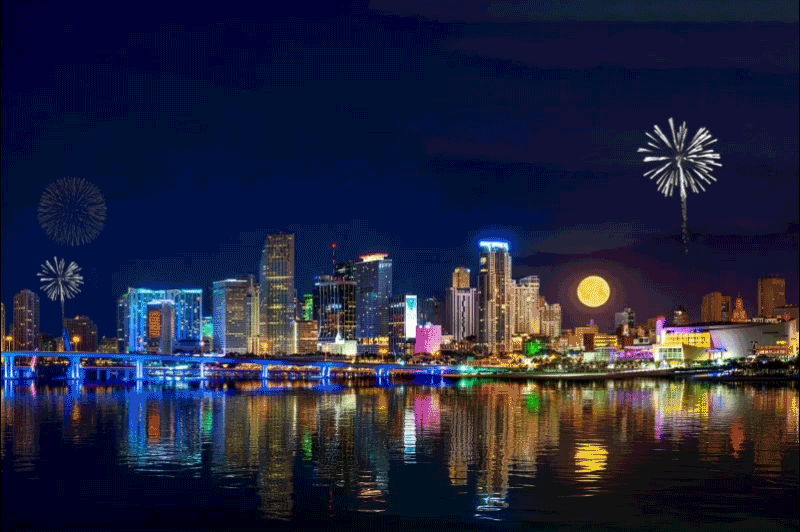
Diwali Events and Activities in the USA
Various cities across the USA organize Diwali events and activities to commemorate this joyous festival. These events provide an opportunity for people of different backgrounds to come together and experience the vibrant traditions of Diwali. Music and dance performances, art exhibitions, and community gatherings are common activities during Diwali celebrations in the USA. These events contribute to a multicultural and inclusive celebration of the Festival of Lights.
For instance, the Diwali Festival of Lights in San Francisco is a highly anticipated event that attracts thousands of visitors. The festival features a colorful parade, dance performances, live music, and a wide array of food stalls offering delectable Indian cuisine. The highlight of the event is the lighting of diyas and a spectacular fireworks display, creating a mesmerizing spectacle for all to enjoy.
Similarly, the Diwali Mela in Houston, Texas, is known for its vibrant cultural performances, traditional dances, and musical concerts. The event also includes a fashion show, showcasing the latest trends in Indian ethnic wear, and a food court serving a variety of regional Indian dishes. These events not only celebrate the spirit of Diwali but also provide a platform to showcase the rich heritage of Indian culture.
Diwali Decoration Ideas
Decorating homes and spaces during Diwali is an important aspect of the celebrations. It is believed to invite prosperity and happiness into one’s life. Some popular Diwali decoration ideas include creating rangoli designs using colored powders or flowers, placing diyas (clay lamps) around the house, and adorning spaces with colorful flowers and festive lights. These decorations add a festive touch and create a warm and welcoming ambiance for the celebration.
In addition to rangoli and diyas, another popular decoration during Diwali is the use of colorful lights and lanterns. Strings of twinkling lights are hung across homes, buildings, and streets, creating a mesmerizing sight. The lights symbolize the triumph of light over darkness and bring a sense of joy and positivity to the surroundings. Lanterns, also known as kandils, are often made from colorful paper or fabric and can be hung indoors or outdoors. They add an element of charm and beauty to the decorations.
For example, families may hang vibrant torans (door hangings) made of marigold flowers, mango leaves, or other auspicious materials at the entrance of their homes. These torans are believed to ward off negative energies and welcome positive vibrations into the household. Additionally, the use of colorful silk or cotton fabrics to drape furniture and create canopies adds a regal touch to the decorations. The vibrant hues of these fabrics enhance the festive atmosphere and create a visually appealing setting.
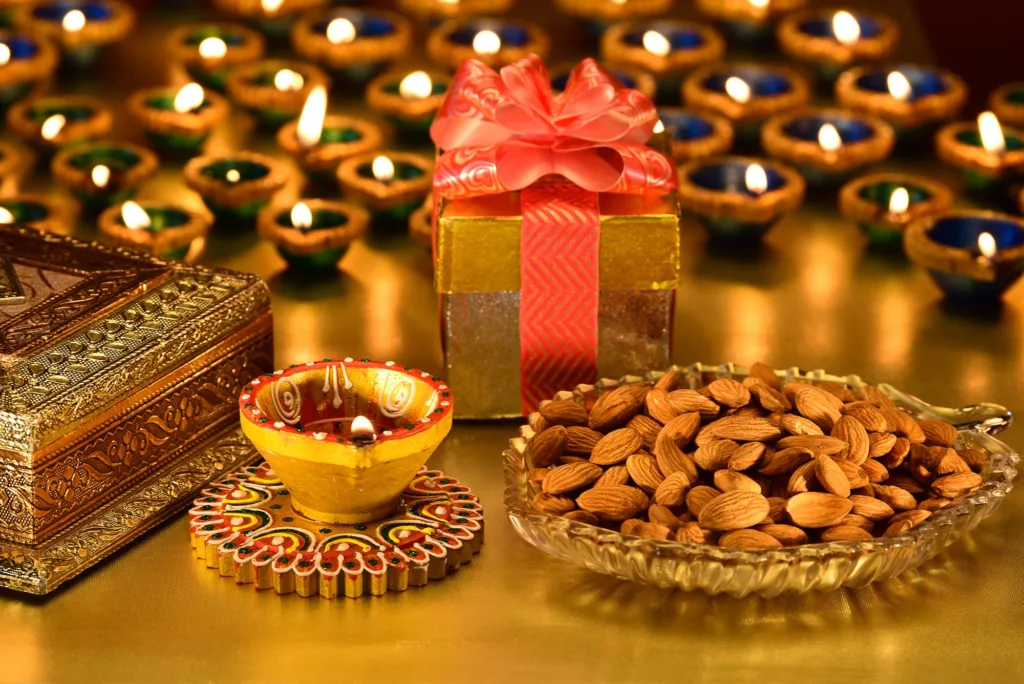
Diwali Gifts
Exchanging gifts is another cherished tradition during Diwali. It is a way to express love, gratitude, and good wishes to family, friends, and loved ones. Traditional Diwali gifts often include sweets, dry fruits, decorative items, and spiritual artifacts. These gifts symbolize the spirit of giving and strengthen the bond between individuals.
In recent years, there has been a growing trend of eco-friendly and sustainable Diwali gifts. People are opting for gifts that are not only thoughtful but also promote environmental consciousness. For example, instead of traditional plastic-wrapped sweets, individuals may choose to gift homemade organic treats or dry fruits in reusable containers. Handmade and locally sourced products, such as candles, soaps, and handicrafts, are also popular choices. These eco-friendly gifts not only align with the values of sustainability but also contribute to the well-being of the planet.
Furthermore, personalized gifts have gained popularity during Diwali festivities. Customized items such as engraved jewelry, monogrammed accessories, or photo albums filled with cherished memories add a personal touch to the gifting experience. These gifts reflect the thoughtfulness and effort put into selecting something unique for the recipient, making them even more special.
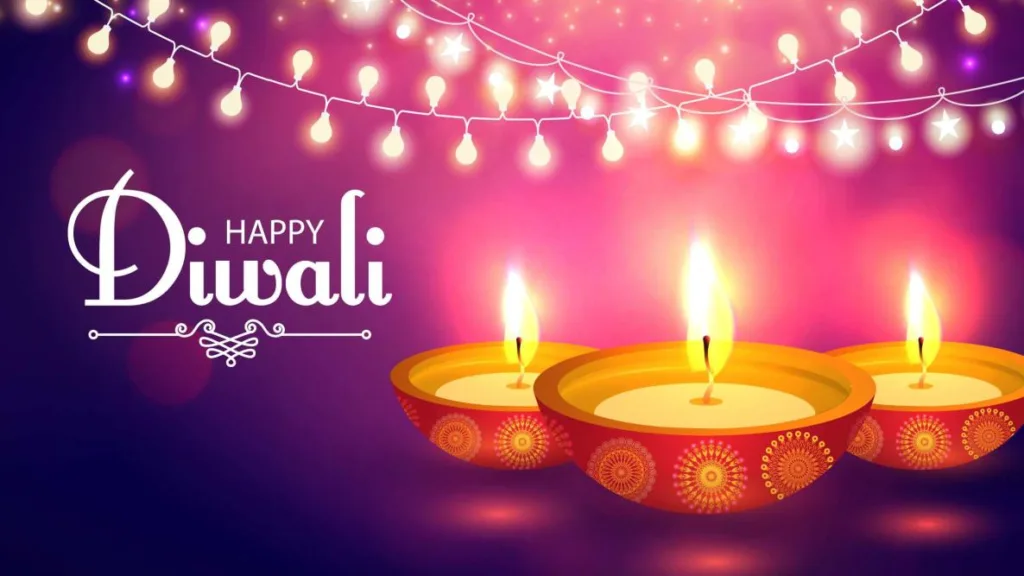
Diwali Wishes and Greetings
Diwali is a time for spreading joy and warmth through heartfelt wishes and greetings. Here are some Diwali wishes you can share with your loved ones:
- May the light of Diwali illuminate your path and bring prosperity and happiness to your life.
- Wishing you a Diwali filled with love, laughter, and beautiful moments that will create lasting memories.
- May the divine blessings of Diwali bring peace, joy, and success to your doorstep.
- May the glow of the diyas and the spirit of Diwali fill your heart with warmth and positivity.
These wishes and greetings reflect the essence of Diwali and convey the sender’s well wishes for the recipient’s happiness and prosperity.
Additionally, it is customary to exchange sweets and gifts along with the Diwali wishes. Families and friends often visit each other’s homes to offer their greetings and share in the festive spirit. These moments of togetherness and connection make Diwali even more meaningful and enjoyable.
Diwali Facts and Trivia
- Diwali is not only significant in Hinduism but also in Sikhism and Jainism. It marks the liberation of Guru Hargobind Singh and the attainment of nirvana by Mahavira.
- Diwali falls on Kartik amavasya, the new moon day of the Kartik month, according to the Hindu lunar calendar.
- The festival is associated with several mythological stories, including the return of Lord Rama to Ayodhya after defeating the demon king Ravana and the union of Goddess Lakshmi and Lord Vishnu.
- Diwali is a time for feasting, gambling, exchanging gifts, and bursting firecrackers.
These facts and trivia add depth and context to the celebration of Diwali, highlighting its significance across different religions and cultures.
Diwali is a time to come together, celebrate, and embrace the spirit of light and positivity. Whether it is through colorful decorations, traditional rituals, delicious food, or festive events, Diwali brings joy and happiness to individuals and communities. It is an occasion to cherish the values of love, unity, and gratitude. As Diwali approaches, let us immerse ourselves in the vibrant traditions of this festival and spread the light of happiness and prosperity to all.
To explore more about travel, festivals, and cultural events, visit the TripperGuy website at https://tripperguy.com/.
Read our article The Triumph of Light: Exploring the Significance and Traditions of Diwali
